Struggling to Survive: Urban Poverty and Social Breakdown in Post-Coup Yangon
Four years after Myanmar’s military violently seized power, daily life in Yangon has broken down. Prices are soaring, jobs are scarce, and formerly stable familiesare now hovering at the edges of desperation. Poverty has deepened not just in numbers, but in intensity – and so has fear.
Text & Pictures by Josephine Kyi // Edit by Shwe Nakamwe
YANGON – In the words of one city resident, “We are not living. We are trying not to drown.”
Since the 2021 coup, life in Yangon has unravelled. Once Myanmar’s economic hub, the city is now defined by deepening poverty, collapsing public services, and a rising sense of fear. Nearly half the city’s population now lives below the national poverty line – a threshold based on local costs for basic food, shelter, and non-food needs.
Wages have stagnated, prices have sky-rocketed, and essential services like healthcare, education, and electricity have deteriorated, with health care workers now targets of the military, striking teachers on the run, and often only two hours per day of electricity. As governance fails and social safety nets vanish, residents are left to fend for themselves. Families are withdrawing children from school, workers are striking for survival-level wages, and theft and forced conscription have become parts of everyday life. Personal testimonies from across the city expose the emotional and psychological scars that accompany total economic collapse.
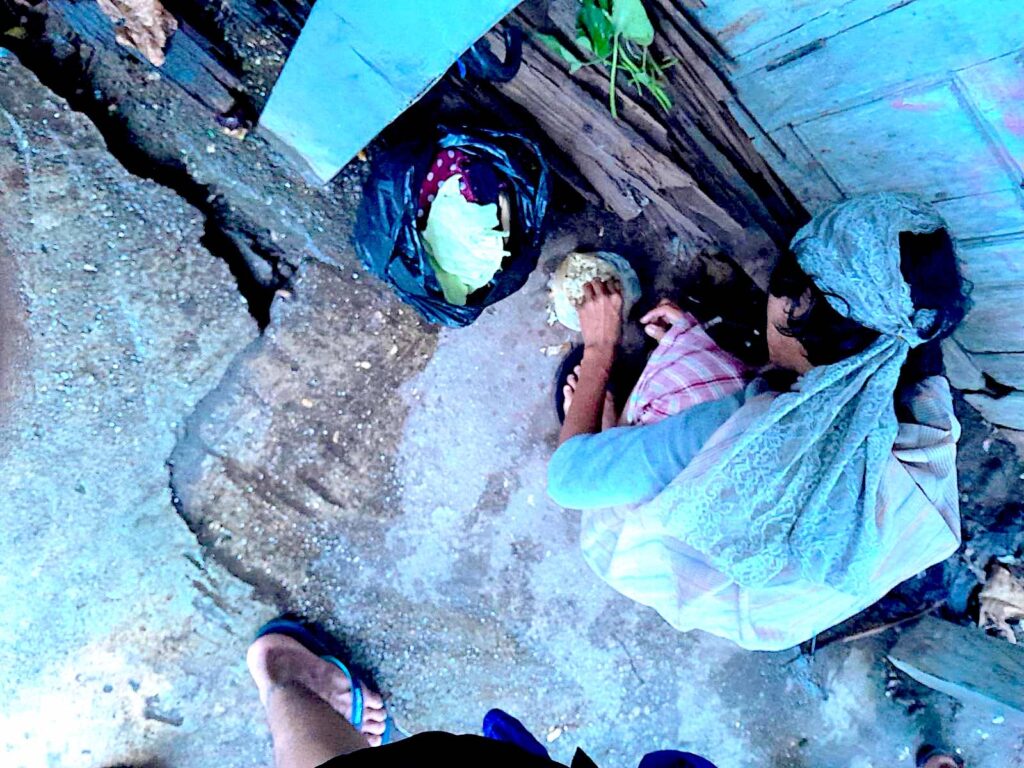
What does “poverty” mean in Myanmar?
The poverty statistics cited in this article are based on Myanmar’s national poverty line, as defined in the 2017 Myanmar Living Conditions Survey (MLCS). This threshold reflects the minimum daily consumption required to meet basic needs, including food, shelter, clothing, and essential non-food expenses, according to local prices and living conditions.
In 2017, the national poverty line was set at 1,590 kyat per adult equivalent per day, using first-quarter kyat values. This local measure differs from global benchmarks like the World Bank’s extreme poverty line of USD 2.15/day, which is applied uniformly across countries.
Since the 2021 coup, Myanmar’s economic collapse – including rapid inflation, a devalued kyat, and the erosion of public services – has pushed many households below the poverty line who would not have been considered poor – by national standards – under previous conditions. In urban areas like Yangon, where many goods are imported and prices have surged, poverty has deepened dramatically even for those with previously stable incomes.
A City Reclassified as Poor
According to a UNDP report published in June 2025, 10% of Yangon’s urban population was classified as poor in 2017. By 2023, that figure had risen to 43%. Yangon’s urban population is approximately 6.2 million, meaning around 2.7 million people now live in poverty.
The report also notes that the depth of urban poverty has intensified, increasing from 2% in 2017 to 26% in 2023. “This means that not only are more people in Yangon falling below the poverty line, but those who are poor are now much further below the poverty line than before,” the report stated.
[ Sources – Myanmar Living Conditions Survey 2017, Poverty Report, Central Statistical Organization, UNDP, and World Bank ]
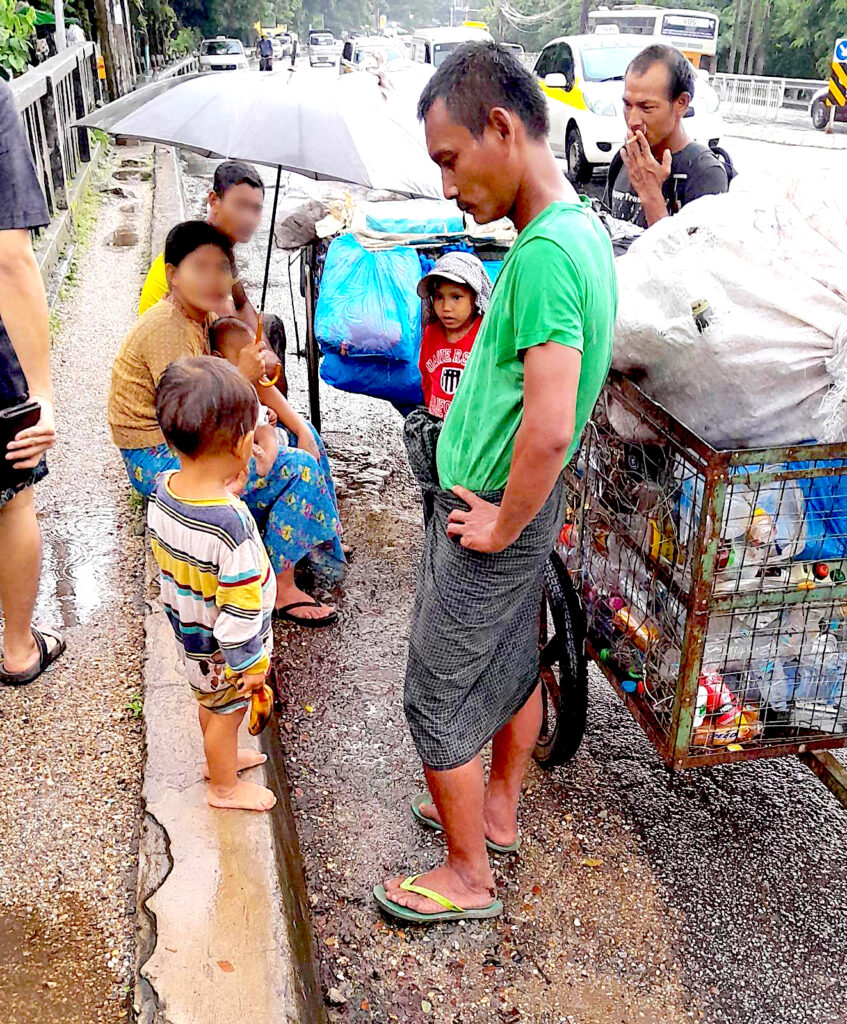
The Rising Cost of Everything
Daw Hnin*, a 45 year old mother of two, points out that household income has not kept pace with the rise in general goods prices.
In 2021, she joined the student striking Civil Disobedience Movement (CDM), planning to enroll her child in a government school only after the junta had been removed. Four years after the coup, the junta still holds control. She now has to spend more for her eldest child’s private education, since it’s now too late to begin public schooling.
“It is not a government school. It is private and costs a lot,” she said. While she didn’t mention other expenses such as uniforms, stationery, and transport, these costs must also be considered. Her family can still afford them, for now.
According to the UNDP, 17% of children are not attending school, and children from 37% of the poorest households are working to contribute to household income.
A dozen blank notebooks in Yangon cost around 15,000 kyat on average – more than a blue-collar worker’s daily wage. There are no social supports to assist with basic educational expenses.
The Wage Revolt
Since May 2025, thousands of factory workers have been soft-striking to demand a daily wage that covers their basic expenses. From May to the third week of June, strikes took place at 16 factories. All but one resulted in successful negotiations with factory management.
Economic collapse brought on by the coup has seen the Myanmar kyat depreciate to one-quarter of its pre-2021 value. In 2018, a minimum daily wage of 4,800 kyat was worth about USD 3. By 2025, a raised daily wage of 5,800 kyat equates to roughly USD 1.50.
A report by the Solidarity Trade Union Myanmar (STUM), Living Wages, published in May 2025, found that 88% of respondents said their wage was insufficient for daily costs, and 54% said they constantly struggled to cover rent, electricity, and other basic expenses.
57% of workers surveyed South Dagon, Mingalardon, Insein, Hlaing Thar Yar, and Shwe Pyi in said that a reasonable daily wage would range from 12,001 to 17,000 kyat (at time of writing, between US$5.70-$8.10).
STUM Report, 2025
Following the strikes, several factories raised daily wages to between 9,000 and 13,000 kyat. As these adjustments were made independently by factory management, wages now vary across workplaces. The junta has remained silent throughout these labour actions, even though the factories operate under its jurisdiction.
When the Lights Go Out
U Khin, about 60 years old, said he is currently managing financially – but only because his children are grown and he no longer has to support them. He works as a trishaw motorbike driver. When the motorbike needs repairs, he takes on small debts because his earnings barely cover daily expenses.
He is concerned about electricity bills. “Sometimes they only charge maintenance fees, then the next month there’s a huge bill to cover the missing charges,” he explained. “If we can’t pay, they cut off the electricity – and then charge us again to reinstall it.”
The electricity system is run by the state and, under the junta, has become unpredictable and punitive. There is no clear complaints process. Many, like U Khin, are left with no recourse.
Financial and daily living struggles are affecting people’s mental well-being. According to the STUM report, 67% of workers surveyed said their current wage had impacted upon both their physical and mental health.
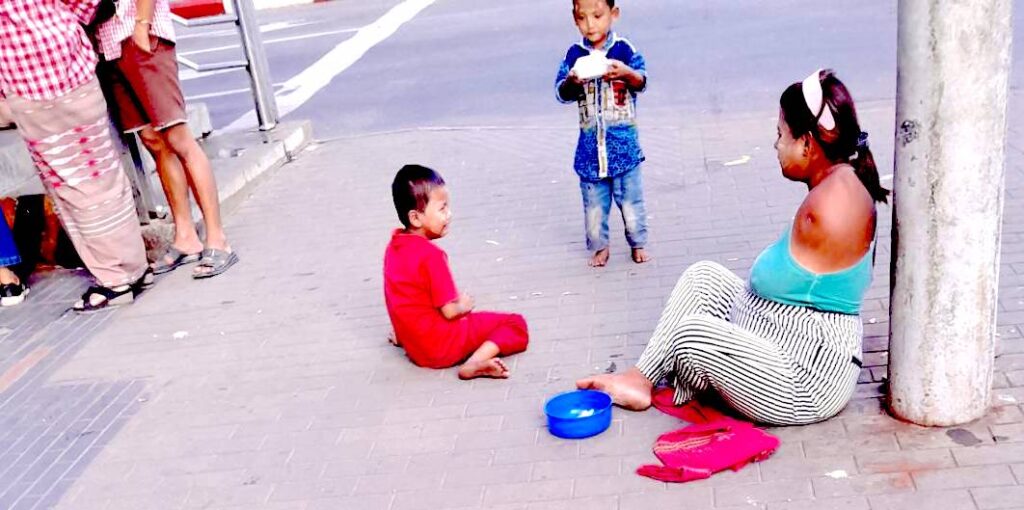
Mental Health Crisis Grows in Silence
Ko Wai Yan, a counsellor at Purple Window – a psychosocial support organization – noted that mental health challenges don’t appear in isolation. “Mental health issues emerge when social needs aren’t met,” he explained. “Just as people in war zones suffer trauma from direct attacks, those suffering long-term deprivation and insecurity develop severe mental health problems too.”
He added that workers in Myanmar have faced a continuous crisis since the first wave of COVID-19 in 2020 – now deepened by political conflict and economic collapse since 2021.
Security has become an added concern. According to the UNDP report, people report feeling unsafe walking alone at night, particularly in peri-urban areas, and fear being arrested for forced conscription.
Conscription and the Criminalization of Survival
Daw Mya’s 27-year-old son was arrested by military soldiers on his way to work one morning in April. “Some soldiers took him while he was peeing on the side of the road,” she said.
After days visiting government offices, trying to locate him, she was eventually told he was being held at Ba Yint Naung Interrogation Centre in Insein Township.
“The government officers shouted at me when I asked the same question twice,” she said, holding a plastic bag of snacks – bread and ngapi kyaw (fish sauce) – for her son. Bribing for her son’s release, she said, was impossible. He had been taken for conscription. 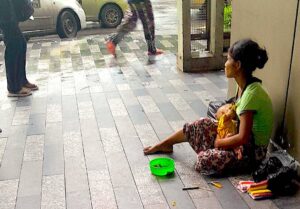
From Enforcers to Extortionists
Local police are unhelpful. The criminal record certificates they once issued – previously required for job applications – have become irrelevant and are now largely omitted from local employment ads.
Victims of theft or burglary now avoid reporting to the police, believing the process to be ineffective, time-consuming and expensive.
Earlier this year, Daw Hnin’s family home was robbed. Over 10 million kyats’ worth in both cash and gold was taken. She chose not to report the burglary. “If we reported it, nothing would come of it – except the police would ask for bribes,” she said.
Daw Mi Mi, 59, who lives in a crowded urban township, has been robbed twice – once losing a laptop, once a phone. “I know who stole the laptop,” she said, “but reporting it to police does nothing.”
According to residents like her, this kind of burglary was rare before 2021.
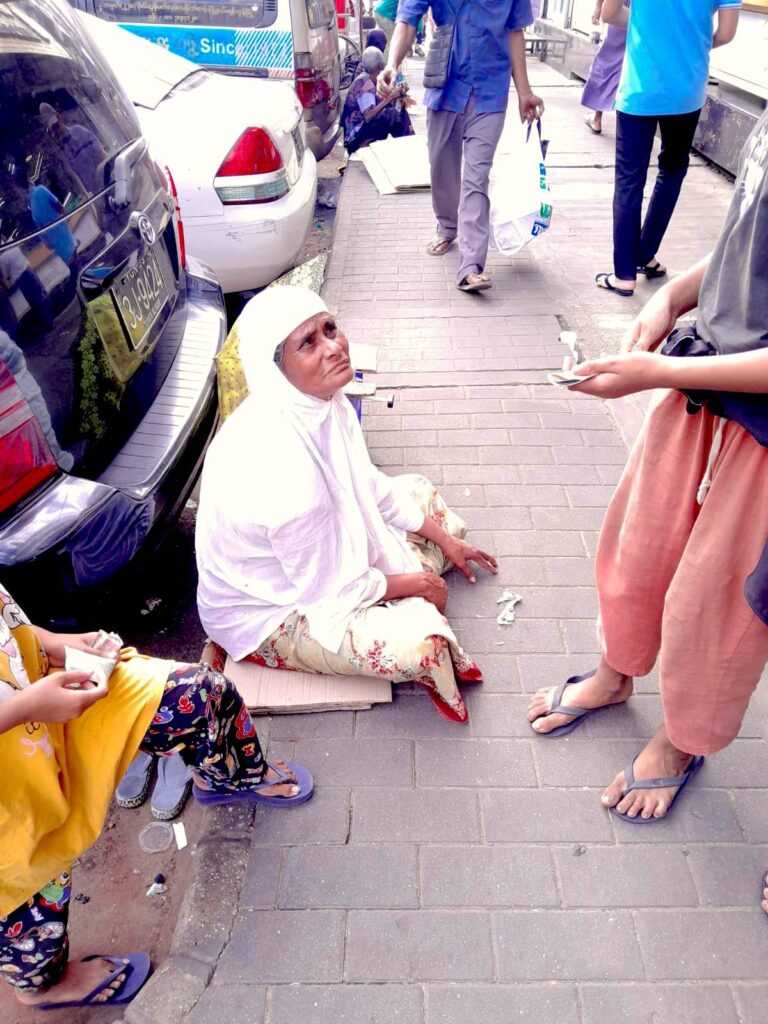
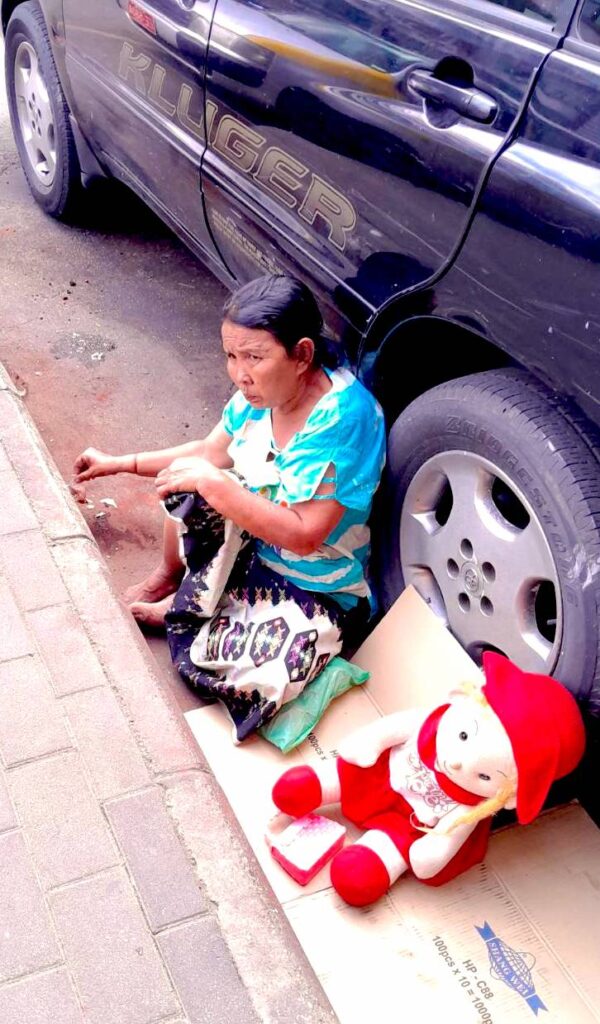
From a City of Lights to a City of Fear
Yangon, once a city of 24-hour electricity and bustling nightlife, is now dark and quiet under curfew. Limited power supply and widespread fear have silenced what used to be one of Southeast Asia’s most vibrant cities.
Before the coup, Yangon attracted people from across Myanmar in search of jobs, healthcare, and education. Today, it offers a harsh reminder of what happens when governance collapses and public trust vanishes.
In the first week of June, the International Labour Organization (ILO) invoked Article 33 of its Constitution for the second time against Myanmar’s military regime. The move relates to violations of Convention 29 (Forced Labour) and Convention 87 (Freedom of Association and Protection of the Right to Organise). Under Article 33, ILO member states – including governments, employers, and workers’ organisations – may suspend cooperation or cut business ties, potentially prompting international factories operating in Myanmar to withdraw their investments.
As of 2024, around 700,000 people were employed in CMP factories across Myanmar, according to figures released by the junta. UN studies indicate that the vast majority of these workers are young women between the ages of 18 and 23.
As international pressure flounders and economic conditions continue to deteriorate, ordinary people in Yangon are left navigating the wreckage of a city – and a country – in freefall. Foreign sanctions and labour boycotts may strike at the regime’s legitimacy, but they also deepen the precarity faced by workers already pushed to the edge. For the young, the poor, the old, and the displaced, survival has replaced stability. In the absence of functioning governance or protection, it is not the junta that pays the highest price – it is the people.
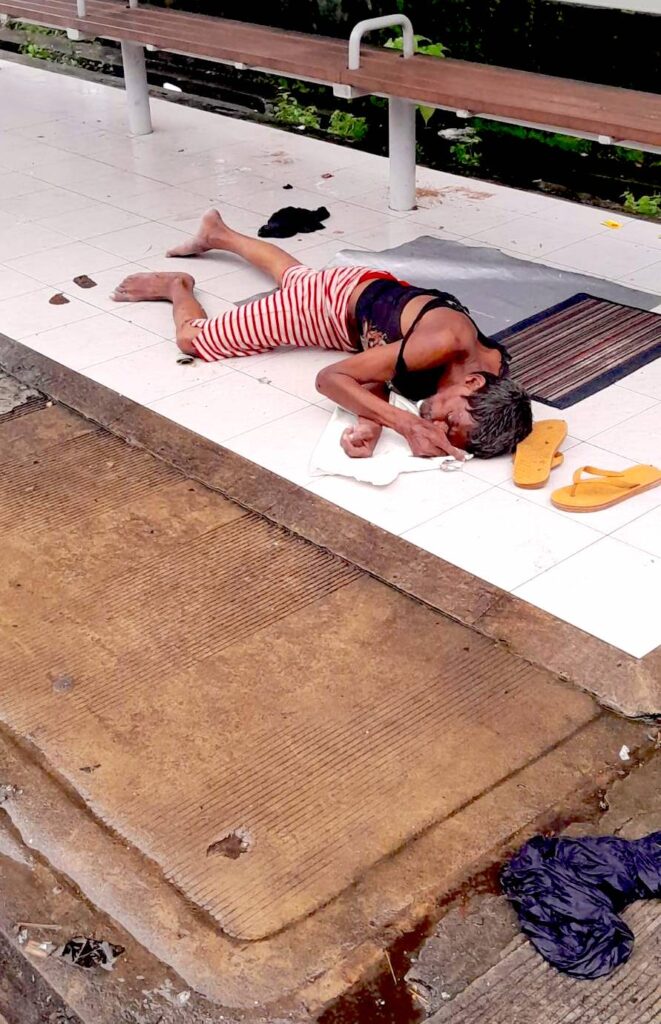
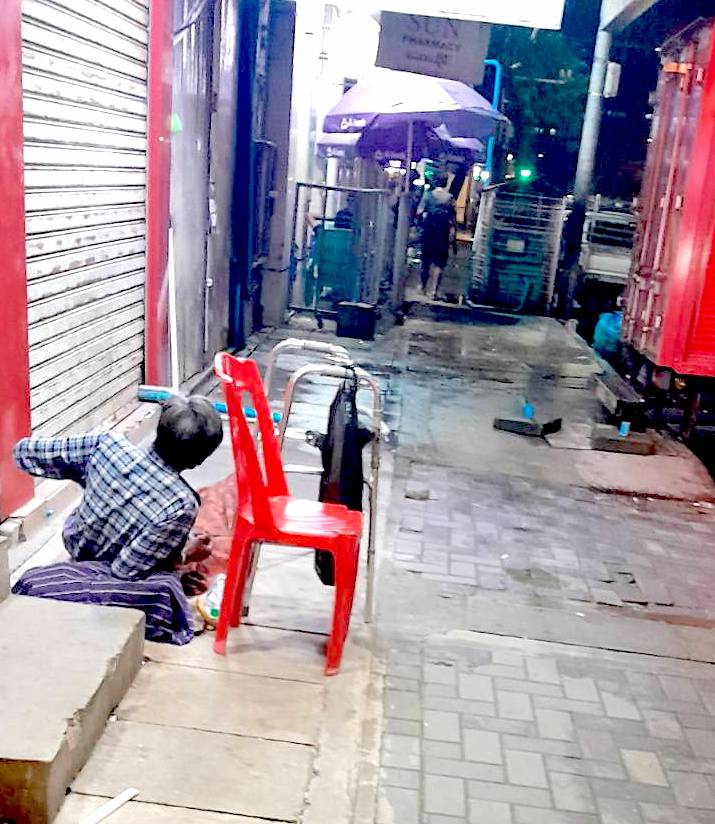
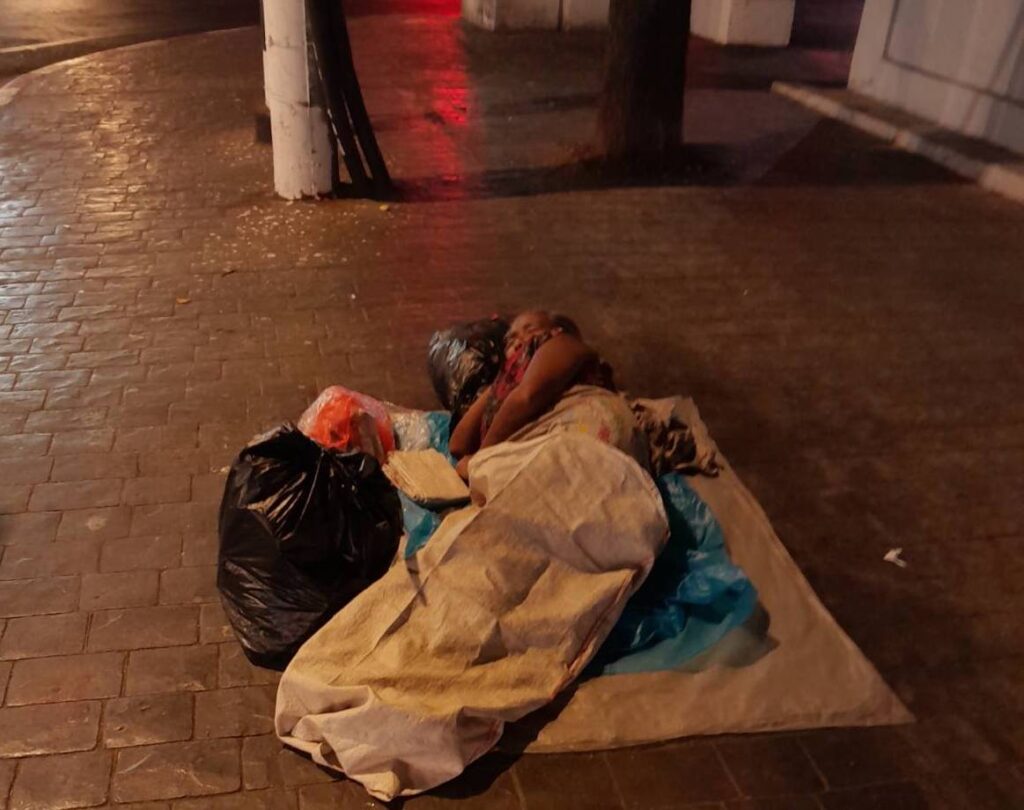
* Names have been changed for the protection of interlocutors